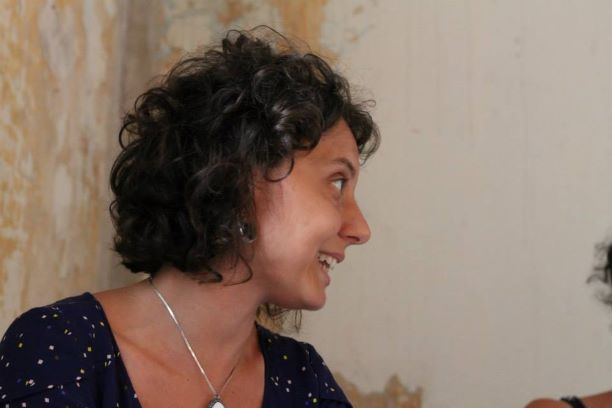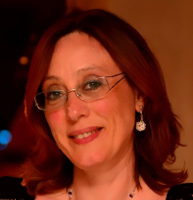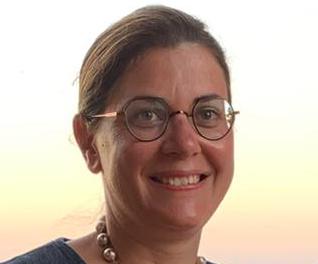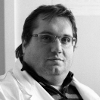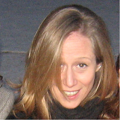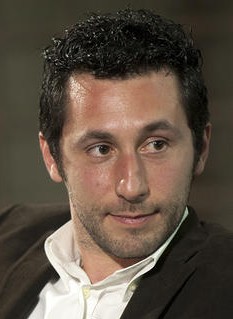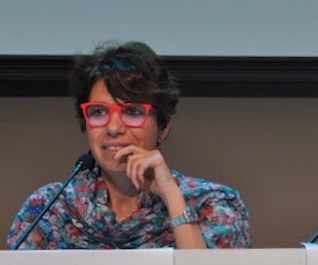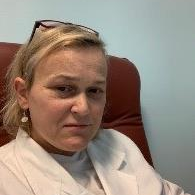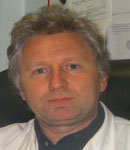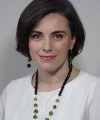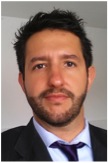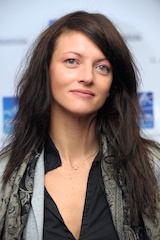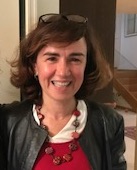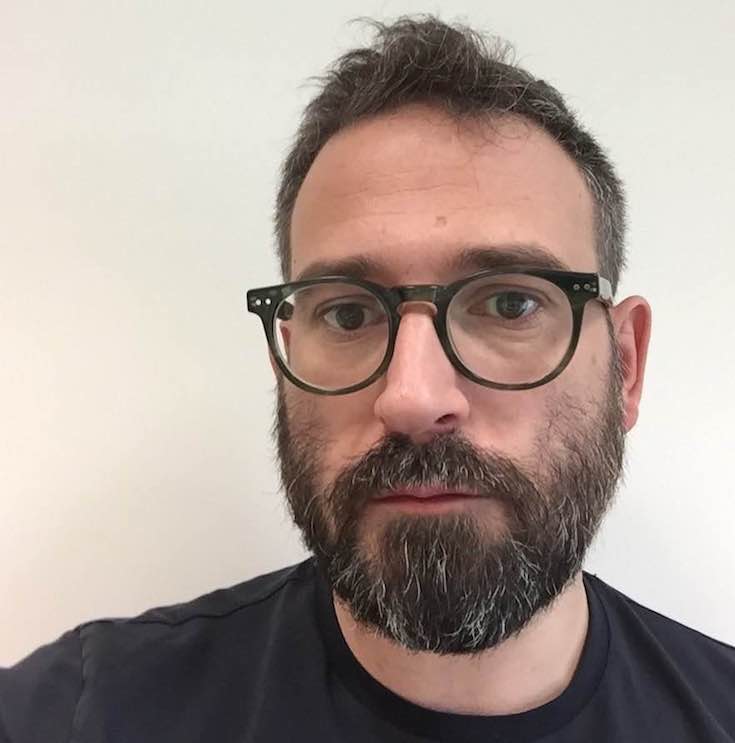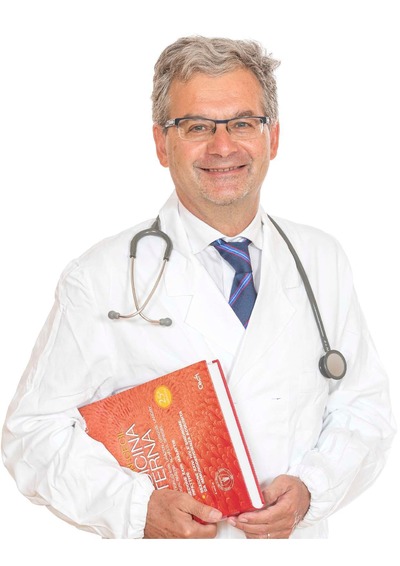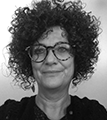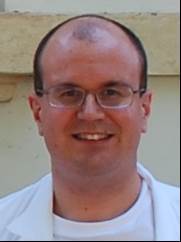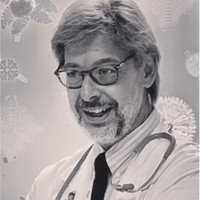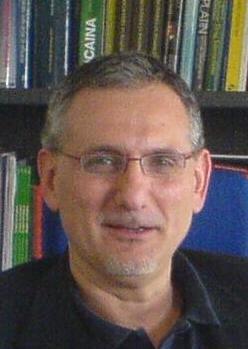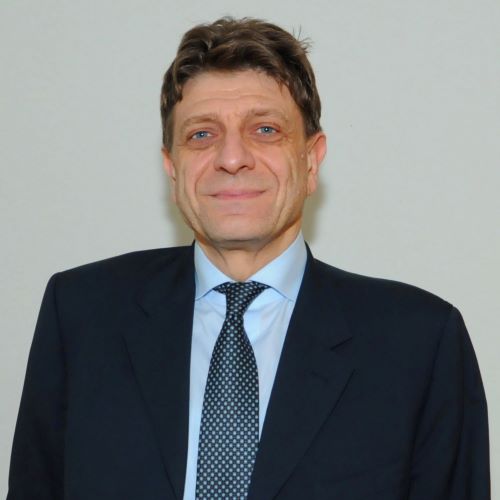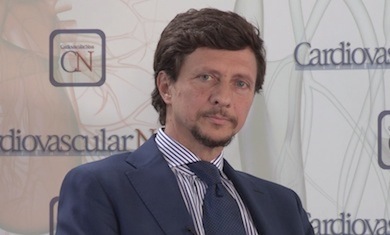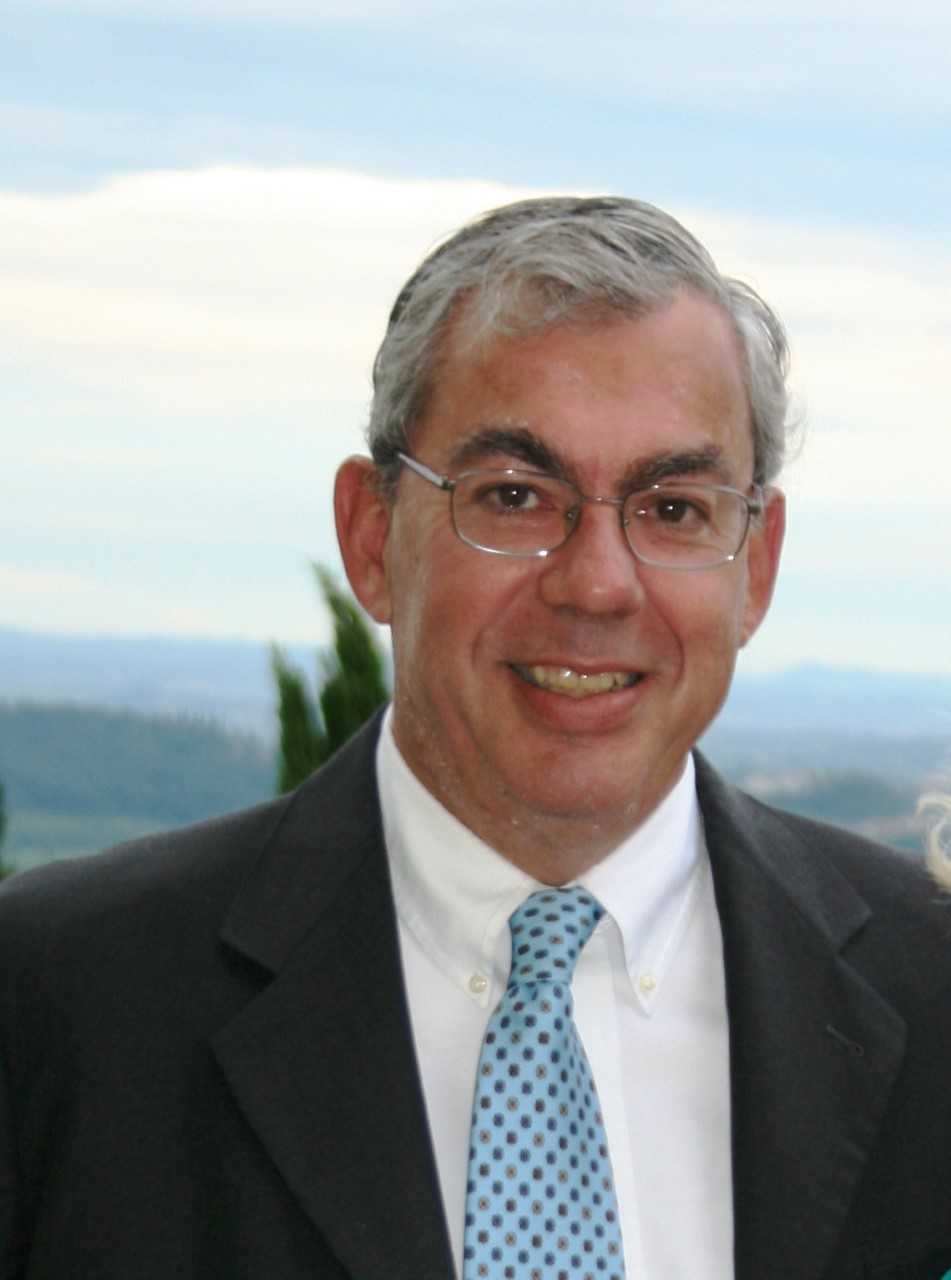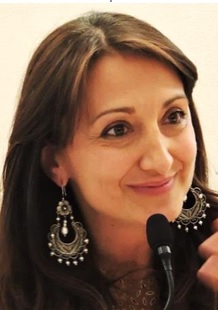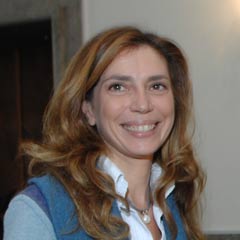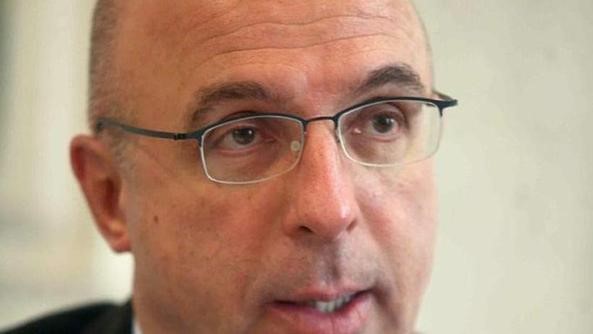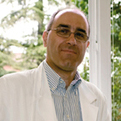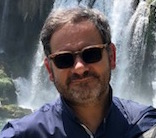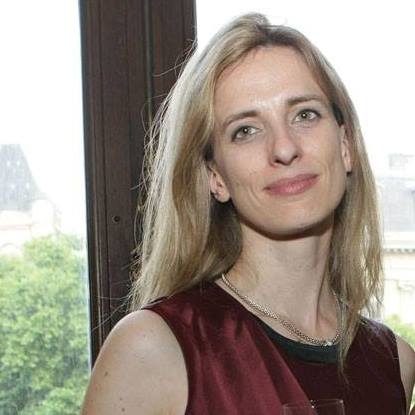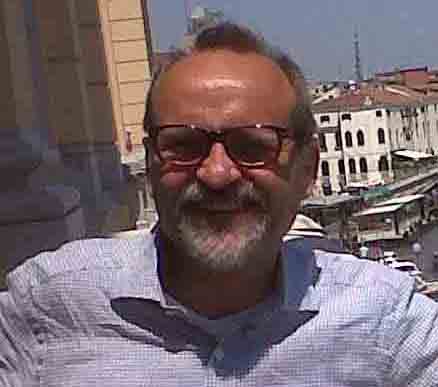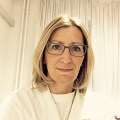Studying at the University of Verona
Here you can find information on the organisational aspects of the Programme, lecture timetables, learning activities and useful contact details for your time at the University, from enrolment to graduation.
Academic calendar
The academic calendar shows the deadlines and scheduled events that are relevant to students, teaching and technical-administrative staff of the University. Public holidays and University closures are also indicated. The academic year normally begins on 1 October each year and ends on 30 September of the following year.
Course calendar
The Academic Calendar sets out the degree programme lecture and exam timetables, as well as the relevant university closure dates..
| Period | From | To |
|---|---|---|
| INF VR - 1° anno 1° sem | Oct 1, 2019 | Dec 20, 2019 |
| INF VR - 2° anno 1° sem | Oct 1, 2019 | Dec 20, 2019 |
| INF VR - 3° anno 1° sem | Oct 21, 2019 | Dec 20, 2019 |
| INF VR - 3° anno 2° sem | Jan 27, 2020 | Mar 13, 2020 |
| INF VR - 1° anno 2° sem | Feb 3, 2020 | Apr 3, 2020 |
| INF VR - 2° anno 2° sem | Apr 20, 2020 | Jun 19, 2020 |
| Session | From | To |
|---|---|---|
| INF VR - sessione invernale (3° anno) | Jan 7, 2020 | Jan 24, 2020 |
| INF VR - sessione invernale (1°-2° anno) | Jan 7, 2020 | Jan 31, 2020 |
| INF VR - sessione estiva (3° anno 1^ parte) | Mar 23, 2020 | Apr 3, 2020 |
| INF VR - sessione estiva (1° anno 1^ parte) | Apr 15, 2020 | Apr 24, 2020 |
| INF VR - sessione estiva (2° anno) | Jun 22, 2020 | Jul 24, 2020 |
| INF VR - sessione estiva (3° anno 2^ parte) | Jul 15, 2020 | Jul 31, 2020 |
| INF VR - sessione estiva (1° anno 2^ parte) | Jul 22, 2020 | Jul 31, 2020 |
| INF VR - sessione autunnale | Sep 1, 2020 | Sep 30, 2020 |
| Session | From | To |
|---|---|---|
| 1^ SESSIONE | Oct 1, 2020 | Nov 30, 2020 |
| 2^ SESSIONE | Mar 1, 2021 | Apr 30, 2021 |
| Period | From | To |
|---|---|---|
| FESTIVITA' OGNISSANTI | Nov 1, 2019 | Nov 1, 2019 |
| FESTIVITA' IMMACOLATA CONCEZIONE | Dec 8, 2019 | Dec 8, 2019 |
| Vacanze di Natale | Dec 24, 2019 | Jan 6, 2020 |
| VACANZE DI PASQUA | Apr 10, 2020 | Apr 15, 2020 |
| FESTA DELLA LIBERAZIONE | Apr 25, 2020 | Apr 25, 2020 |
| FESTIVITA' DEL LAVORO | May 1, 2020 | May 1, 2020 |
| FESTIVITA' DEL SANTO PATRONO SAN ZENO | May 21, 2020 | May 21, 2020 |
| FESTA DELLA REPUBBLICA | Jun 2, 2020 | Jun 2, 2020 |
| Description | Period | From | To |
|---|---|---|---|
| INF VR - tirocinio 2° anno 1^ esp | INF VR - tirocinio 2° anno 1^ esp | Feb 3, 2020 | Apr 3, 2020 |
| INF VR - tirocinio 3° anno 1^ esp | INF VR - tirocinio 3° anno 1^ esp | Apr 6, 2020 | May 22, 2020 |
| INF VR - tirocinio 1° anno 1^ esp | INF VR - tirocinio 1° anno 1^ esp | Apr 27, 2020 | Jun 9, 2020 |
| INF VR - tirocinio 3° anno 2^ esp | INF VR - tirocinio 3° anno 2^ esp | Jun 1, 2020 | Jul 14, 2020 |
| INF VR - tirocinio 1° anno 2^ esp | INF VR - tirocinio 1° anno 2^ esp | Jun 15, 2020 | Jul 17, 2020 |
| INF VR - tirocinio 2° anno 2^ esp | INF VR - tirocinio 2° anno 2^ esp | Sep 1, 2020 | Oct 8, 2020 |
| INF VR - tirocinio 3° anno 3^ esp | INF VR - tirocinio 3° anno 3^ esp | Sep 4, 2020 | Oct 15, 2020 |
Exam calendar
Exam dates and rounds are managed by the relevant Medicine Teaching and Student Services Unit.
To view all the exam sessions available, please use the Exam dashboard on ESSE3.
If you forgot your login details or have problems logging in, please contact the relevant IT HelpDesk, or check the login details recovery web page.
Academic staff
 marialivia.alga@univr.it
marialivia.alga@univr.it
 elisabetta.allegrini@aovr.veneto.it
elisabetta.allegrini@aovr.veneto.it
 michele.bertani@univr.it
michele.bertani@univr.it
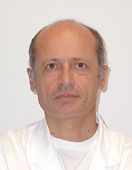
Bisoffi Zeno
 zeno.bisoffi@sacrocuore.it
zeno.bisoffi@sacrocuore.it
 +390456013326
+390456013326
 federica.bonato@aor.veneto.it
federica.bonato@aor.veneto.it
Cunico Laura
 laura.cunico@univr.it
laura.cunico@univr.it
 0444752922
0444752922
 stefania.danese@univr.it
stefania.danese@univr.it
 francesca.defanti@univr.it
francesca.defanti@univr.it
 stefano.detogni@univr.it
stefano.detogni@univr.it
 massimo.dibenedetto@univr.it
massimo.dibenedetto@univr.it
 laura.messina@univr.it
laura.messina@univr.it
 fpecoraro@ospedalepederzoli.it
fpecoraro@ospedalepederzoli.it
 nicola.pelizzari@univr.it
nicola.pelizzari@univr.it
Pighi Michele
 michele.pighi@univr.it
michele.pighi@univr.it
 0458122320
0458122320
 sara.pilotto@univr.it
sara.pilotto@univr.it
 zenogabriele.poli@univr.it
zenogabriele.poli@univr.it
 er.vedovi@virgilio.it
er.vedovi@virgilio.it
 elisabetta.veronese@aovr.veneto.it
elisabetta.veronese@aovr.veneto.it
 liria.veronesi@univr.it
liria.veronesi@univr.it
 tamara.zerman@univr.it
tamara.zerman@univr.it
 lzivelonghi@aulss9.veneto.it
lzivelonghi@aulss9.veneto.it
Study Plan
The Study Plan includes all modules, teaching and learning activities that each student will need to undertake during their time at the University.
Please select your Study Plan based on your enrollment year.
1° Year
| Modules | Credits | TAF | SSD |
|---|
Pathophysiology applied at Nursing
Biomolecular fondamentals of life
Morphological and functional fundamentals of life
General and methodological nursing
Health and safety promotion
English for Nursing
2° Year activated in the A.Y. 2020/2021
| Modules | Credits | TAF | SSD |
|---|
Application of diagnostic and therapeutic processes
Chronic clinical nursing care
Clinical nursing care in surgical area
Clinical nursing care in medical area
Relationship in nursing care
Clinical practice (2nd year)
3° Year activated in the A.Y. 2021/2022
| Modules | Credits | TAF | SSD |
|---|
Critical nursing care
Evidence based nursing
Health organizations and care processes
Legal, bioethic and deontological principles of professional practice
Maternal and paediatric nursing care
Clinical practice (3rd year)
| Modules | Credits | TAF | SSD |
|---|
Pathophysiology applied at Nursing
Biomolecular fondamentals of life
Morphological and functional fundamentals of life
General and methodological nursing
Health and safety promotion
English for Nursing
| Modules | Credits | TAF | SSD |
|---|
Application of diagnostic and therapeutic processes
Chronic clinical nursing care
Clinical nursing care in surgical area
Clinical nursing care in medical area
Relationship in nursing care
Clinical practice (2nd year)
| Modules | Credits | TAF | SSD |
|---|
Critical nursing care
Evidence based nursing
Health organizations and care processes
Legal, bioethic and deontological principles of professional practice
Maternal and paediatric nursing care
Clinical practice (3rd year)
Legend | Type of training activity (TTA)
TAF (Type of Educational Activity) All courses and activities are classified into different types of educational activities, indicated by a letter.
Clinical nursing care in medical area [Matricole dispari] (2020/2021)
The teaching is organized as follows:
MALATTIE INFETTIVE
Credits
1
Period
INF VR 2° ANNO 1° SEM
Location
VERONA
Academic staff
Zeno Bisoffi
Learning outcomes
The course focuses on care about patients with chronic medical problems during stability and instability spans (heart failure, IMA and angina, COPD and asthma). The approach considers the contents and the care ways to activate specific self-help behaviors considering that most of the patients with chronic illness live at home and the hospitalization time is very short. Patient problems will be addressed by considering their evolution, the evaluation of the patient and the choice of care interventions based on the evidence, appropriateness and patient’s needs. The instability/worsening will be approached with an assistance protocol. The disease impact and experience on patient’s and family life will be considered and the rehabilitative and palliative aspects will be explored considering the symptoms in the advanced stage (eg dyspnoea). CARDIOVASCULAR DISEASES: To provide the basis of the principal cardiovascular diseases, their clinical presentation and diagnostic methods. CLINICAL MEDICAL NURSING The module focuses on assisting patients with chronic medical problems in the process of stability and instability (heart failure, MI and angina, COPD and asthma). The approach considers the contents and modalities of assistance to activate specific self-care behaviors considering that the majority of patients with chronic disease live at home and the time of hospitalization is very short. The patient's problems will be addressed considering their evolution, the patient's evaluation and the choice of care interventions based on evidence, appropriateness and the patient's needs. Instability / exacerbation will be addressed with a welfare protocol. The impact and experience of the disease on the patient's life and on the family will be considered and the aspects of rehabilitation and palliation with respect to symptoms in the advanced stage (eg dyspnea) will be explored. This teaching is built on the knowledge of the 1st year of nursing (breath assessment, meaning and signs / symptoms of hypoxia, dyspnea, principles of O2 therapy, principles of nursing, vigilance), physiology, physiopathology and general pathology. The contents are connected to the two subsequent modules of therapeutic and nursing education of the community for the trend of early discharge and need for support at the time of discharge PNEUMOLOGY the course aims to provide the student with the knowledge of the major pathologies in the pulmonary field and the diagnostics necessary for a clinical and instrumental framework. Particular attention will be paid to the nursing aspect of the topics covered. INTERNAL MEDICINE - Acquiring the ability to recognize and describe signs and symptoms of the pathologies treated; - Knowing how to identify, in the interview with the patient, the main points that guide the diagnostic process; - Knowing how to set up a correct care plan based on anamnestic and clinical data ONCOLOGY Knowing the principles of Medical Oncology and Palliative Care, the rational bases and the operating methods of screening, diagnosis and staging of the highest incidence tumors. Knowing the goals of the treatments, and the specific strategies (principles of chemotherapy, radiotherapy, molecular target therapies, immunotherapy). Knowing the rational bases and the operational methods of interventions aimed at supporting / supporting the cancer patient (pain therapy, nutritional support, etc.). INFECTIOUS DISEASES The module focuses on assisting patients with acute or chronic infectious problems and on the main prevention measures for infections in hospitals, in particular those in which nurses play an essential role. Particular emphasis is given to the recognition of symptoms, signs and vital signs that can configure an urgency-infectious emergency, to risk factors for the acquisition of nosocomial infections and to procedures to help prevent its onset. A global, national epidemiological picture is provided of the treated pathologies and when it is possible regional and local; the essential notions on transmission modalities and pathophysiology are provided; the main symptoms and clinical signs, some laboratory tests and their advantages and limitations, and some hints of therapy are indicated The specific role and contribution of the nursing profession in terms of care, prevention and education is highlighted, especially with regard to high-risk patients.
Program
------------------------
MM: MALATTIE CARDIOVASCOLARI
------------------------
Course table of contents Chapter 1 Anatomy of the heart and vessels Chapter 2 Cardiovascular physiology, and bases of hemodynamics The cardiac cycle Bases of electrocardiography Pulmonary gas exchange Tissue perfusion Chapter 3 Diagnostic techniques based on physiopathology Electrocardiogram, stress test and Holter-loop recorder Chest X-ray and CT scan Echocardiogram SPECT Chapter 4 Ischemic heart disease Epidemiology and risk factors Atherosclerosis and chronic coronary artery disease Acute coronary syndromes Acute myocardial infarction Myocardial revascularization techniques Chapter 5 Basis of electrocardiography Syncope and arrhythmias Syncope Brady and tachy arrhythmias Chapter 6 Heart failure, heart valve disease and cardiomyopathies Cardiac dyspnea Right and left heart failure Cardiomyopathies Valve heart disease Chapter 7 Invasive Cardiology
------------------------
MM: INFERMIERISTICA CLINICA MEDICA
------------------------
Night support and sounds’ evaluation Main problems’ supporting management or cardiovascular and respiratory diseases’ surveillance
------------------------
MM: PNEUMOLOGIA
------------------------
The course in Pulmonology for the academic year 2017/18 will be focused on the following topics: 1) Introduction to respiratory apparatus pathologies and diagnosis; 2) Acute respiratory insufficiency and nurse's role; 3) Chronic respiratory insufficiency and long-term oxygen-therapy; 4) Chronic Obstructive Bronchopneumopathy and OSAS; 5) Bronchial asthma; 6) Non-invasive ventilation support; 7) Community pneumonia and antibiotic therapy.
------------------------
MM: MEDICINA INTERNA
------------------------
Cardiovascular risk factors: arterial hypertension, dyslipidemias, obesity: physiopathology and clinical features of major clinical manifestations of diseases Arterisclerosis: physiopathology and clinical features Chronic heart failure: physiopathology and clinical features Anemias: classifications, physiopathology and clinical features of anemias due to nutritional deficiencies, hemolytic anemias, anemia of chromic diseases Oncohematologic diseases: leukemias and lymphomas, multiple myeloma, mielodysplastic syndromes Thrombotic and hemorragic diseases: physiopathology and clinical features Rheumatologic diseases: lupus erythematosus, rheumatoid arthritis, scleroderma, gout and septic arthritits and major diseases of connective tissue: physiopathology and clinical features.
------------------------
MM: ONCOLOGIA MEDICA
------------------------
Tumour growth and markers Targeted therapies Colon cancer Lung cancer Breast cancer
------------------------
MM: MALATTIE INFETTIVE
------------------------
Hospital infections: the most frequent, their epidemiological impact, how to prevent them, how to help prevent complications, which patients are at greatest risk. The importance of hand washing as a shared culture. Sepsis: correct definition of SIRS, bacteremia, sepsis andseptic shock; etiology; global and local epidemiological aspects and main risk factors; main pathogenic mechanisms; clinical aspects and principles of supportive and specific therapy. Meaning of the main laboratory markers, indication and interpretation of blood cultures. Meningitis: definition, classification and etiology of bacterial versus aseptic meningitis, epidemiology and its modifications by vaccination, main symptoms and clinical signs, diagnosis, hints of therapy, identification of isolation needs, vaccination and prophylaxis and their indications. Tuberculosis: global, national, regional and local epidemiology also in relation to the nationality and influence of HIV; epidemiology of multi-resistant TB; pathophysiology; distinction between latent infection and disease and respective measures; isolation, individual protection and their indications; outline of therapy and importance of ensuring compliance. Malaria: global, national, regional and local epidemiology also in relation to nationality; classical transmission versus cryptic malaria; biological cycle of plasmodium in the human host; the phenomenon of recrudescence; hints of pathophysiology and clinical picture with particular reference to complicated malaria; diagnosis; hints of therapy and chemoprophylaxis. HIV - AIDS: global and national epidemiological aspects and their modifications over time; main modes of transmission; screening and confirmatory diagnosis; outline of immunology and pathogenesis; main clinical aspects including opportunistic infections; HIV and TB; other coinfections; HIV and tumors; hints of antiretroviral therapy and treatment of opportunistic infections; main preventive measures and principles of post-exposure prophylaxis.
Bibliography
| Author | Title | Publishing house | Year | ISBN | Notes |
|---|---|---|---|---|---|
| Saiani e Brugnolli | Trattato di cure infermieristiche 3° edizione (Edizione 3) | Sorbona | 2020 | 9788879477314 | |
| Brugnolli A., Saiani L. | Trattato di Medicina e Infermieristica. Un approccio di cure integrate. (Edizione 1) | Idelson-Gnocchi | 2017 | 9788879476379 | |
| Antonelli Incalzi Raffaele | Medicina Interna perScienze infermieristiche | PICCIN | 2012 | 978-88-299-2114-0 | |
| Fauci, Braunwald, Kasper, Houser, Longo, Jameson, Loscalzo | Harrison Practice. Cardiologia | McGraw-Hill Education | 2012 | 8808185494 | |
| Angelo Raffaele Bianco, Sabino De Placido, Giampaolo Tortora e Pierfranco Conte | Oncologia Clinica 2/ed (Edizione 2) | McGraw-Hill Education (Italy) srl | 2016 | 9788838639845 |
Examination Methods
------------------------
MM: MALATTIE CARDIOVASCOLARI
------------------------
Written multiple choice
------------------------
MM: INFERMIERISTICA CLINICA MEDICA
------------------------
Writing test
------------------------
MM: PNEUMOLOGIA
------------------------
Written multiple choice
MM: MEDICINA INTERNA
------------------------
Written multiple choice
------------------------
MM: ONCOLOGIA MEDICA
------------------------
Written multiple choice
------------------------
MM: MALATTIE INFETTIVE
------------------------
Written multiple choice
Career prospects
Module/Programme news
News for students
There you will find information, resources and services useful during your time at the University (Student’s exam record, your study plan on ESSE3, Distance Learning courses, university email account, office forms, administrative procedures, etc.). You can log into MyUnivr with your GIA login details: only in this way will you be able to receive notification of all the notices from your teachers and your secretariat via email and also via the Univr app.
Gestione carriere
Guida ai programmi degli insegnamenti
La Guida ai programmi degli insegnamenti in allegato è uno strumento di sintesi e orientamento per lo studente, creato da un gruppo di lavoro interno alla Commissione didattica del CdS.
Per tutte le attvità previste dal piano di studi sono descritte: le finalità, i contenuti e integrazioni, learning outcome, i metodi di insegnamento e valutazione e bilbliografia essenziale
Documents
| Title | Info File |
|---|---|
|
|
pdf, it, 1581 KB, 11/07/24 |
Orario lezioni
Si pubblicano gli orari delle lezioni relativi al 2° semestre A.A. 2023/2024
Gli orari potrebbero subire alcune modifiche, pertanto si consiglia di consultare l'orario delle lezioni giornalmente nell‘area riservata MyUnivr e/o ORARIO LEZIONI.
Documents
| Title | Info File |
|---|---|
|
|
pdf, it, 126 KB, 06/03/24 |
|
|
pdf, it, 128 KB, 09/02/24 |
|
|
pdf, it, 120 KB, 18/03/24 |
|
|
pdf, it, 122 KB, 18/03/24 |
|
|
pdf, it, 125 KB, 20/03/24 |
|
|
octet-stream, it, 32 KB, 04/04/24 |
Graduation
Documents
| Title | Info File |
|---|---|
|
|
pdf, it, 1487 KB, 20/08/24 |
List of thesis proposals
| theses proposals | Research area |
|---|---|
| Progetto WITHSTAND- Supportare la resilienza negli eventi avversi in sanità | The Human Mind and Its Complexity: Cognitive science, psychology, linguistics, philosophy of mind - Clinical and health psychology |
| Effetti psicologici del CoViD sugli operatori sanitari | Various topics |
| Il dismorfismo corporeo | Various topics |
| Il fine vita: cure palliative, eutanasia e suicidio assistito | Various topics |
| Il problema della donazione degli organi | Various topics |
| Il sacrificio e l'assurdo | Various topics |
| La medicina narrativa | Various topics |
| Le cure palliative: dignità, cura e lutto | Various topics |
| Ricordo e ossessione | Various topics |
Tirocinio professionalizzante
Finalità del Tirocinio
Durante i 3 anni di laurea le attività teoriche sono alternate con esperienze di tirocinio, nelle quali gli studenti possono esercitarsi nelle abilità cliniche con l’obiettivo di sviluppare la loro professionalità e prepararsi ad entrare nel mondo del lavoro come infermieri. Tali esperienze saranno effettuate in strutture sanitarie ospedaliere, territoriali, socio assistenziali convenzionate con l’Università sulla base dell’accertamento della qualità dell’offerta formativa, oltre che dell’adeguatezza della dotazione di personale e di strutture. Durante il tirocinio lo studente può sperimentarsi in modo attivo affiancato da un infermiere esperto della sede di tirocinio chiamato Supervisore, che facilita l’apprendimento in sicurezza delle competenze professionali , inoltre può avvalersi anche del supporto di un Tutor professionale appartenente al Corso di studio (CdS) con competenze cliniche e pedagogiche che attiva e sostiene i processi di apprendimento dall’esperienza e aiuta a superare eventuali difficoltà.
Le attività formative professionalizzanti e di tirocinio comprendono 60 CFU articolati in:
- esperienze guidate in diversi contesti di tirocinio;
- sessioni tutoriali per preparare e guidare lo studente durante l’esperienza;
- esercitazioni e simulazioni in laboratori dedicati, in cui si sviluppano abilità tecniche, relazionali e metodologiche in situazione protetta, prima o durante la sperimentazione nei contesti reali;
- elaborati scritti su mandati specifici e sessioni di studio guidato.
Pianificazione del tirocinio
L’impegno per lo studente è progressivo nei 3 anni di corso: al 1° anno sono previste esperienze per un totale di 16 CFU; al 2° anno 20 CFU; al 3° anno 24 CFU con la possibilità per lo studente di scegliere almeno un’esperienza è scelta sulla base dei propri bisogni formativi e interessi. Ogni esperienza di tirocinio ha una durata variabile tra 5 e/o 8 settimane e si svolge in contesti diversi. Di seguito si rappresenta un esempio di alternanza delle diverse attività formative nel triennio
|
1° anno |
||||||||
|
TEORIA |
LABORATORI |
ESAMI |
TEORIA |
LABORATORI |
TIROCINIO |
ESAMI |
||
|
2° anno |
||||||||
|
TEORIA |
ESAME |
LABORATORI |
TIROCINIO |
TEORIA |
ESAME |
LABORATORI |
TIROCINIO |
ESAME |
|
3° anno |
||||||||
|
TEORIA |
ESAMI |
LABORATORI |
TIROCINIO |
TEORIA |
ESAME |
TIROCINIO |
ESAME |
TIROCINIO |
Le aree in cui gli studenti potranno svolgere i loro tirocini sono:
- medicina generale e medicina specialistica
- chirurgia generale e chirurgia specialistica
- centri di cure intermedie e di riabilitazione
- area intensiva e dell’emergenza
- area materno-infantile
- servizi di salute mentale
- cure primarie e territoriali
- centri assistenziali per anziani
Il Corso ha attivato una rete molto ampia di sedi su tutto il territorio della provincia di Verona, che garantisce un’offerta formativa ricca e diversificata per l’acquisizione delle competenze infermieristiche.
Sedi attivate e convenzionate
|
*Azienda Ospedaliera Universitaria Integrata- Verona |
Borgo Trento Ospedale Civile Maggiore* |
|
Borgo Roma Ospedale Policlinico GB Rossi* |
|
|
ULSS 9 Scaligera |
Ospedale Fracastoro – San Bonifacio |
|
Distretti 1 - 2 – 3 - 4 Assistenza Domiciliare Integrata |
|
|
Ospedale di Marzana |
|
|
Area Salute Mentale |
|
|
Ospedale di Comunità, Casa di riposo – Tregnago |
|
|
Ospedale di Riabilitazione Psicosociale S. Giuliana |
|
|
IRCCS Ospedale Sacro Cuore Don Calabria |
|
|
Ospedale P. Pederzoli Peschiera del Garda |
|
|
Strutture Residenziali Fondazione Pia Opera Ciccarelli |
|
|
Centro Servizi per Anziani non Autosufficienti Casa Soggiorno “PCC Bresciani” |
|
* La sede principale per i tirocini è rappresentata dall’Azienda Ospedaliera Universitaria Integrata di Verona, con le due sedi degli Ospedali Policlinico di Borgo Roma e Civile Maggiore di Borgo Trento; tutti gli studenti svolgeranno almeno un tirocinio in queste strutture nel triennio
In allegato alla pagina ulteriori informazioni sull’offerta formativa.
La valutazione delle competenze acquisite in tirocinio
Le esperienze di tirocinio sono progettate, valutate e documentate durante il percorso dello studente.
Durante ogni esperienza di tirocinio lo studente riceve dai Supervisori valutazioni formative sui suoi progressi attraverso feedback, colloqui e schede di valutazione dove sono documentate le perfomance previste dagli obiettivi formativi specifici dell’anno di corso.
Al termine di ciascun anno di corso viene effettuata una valutazione sommativa (certificativa) per accertare i livelli raggiunti dallo studente nello sviluppo delle competenze professionali attese e definire il passaggio all’anno di corso successivo. La valutazione viene effettuata da una Commissione presieduta dal Coordinatore delle attività professionalizzanti, e composta da almeno un docente e da un Tutor professionale. Tale valutazione è la sintesi delle valutazioni formative documentate durante l’anno di corso, il profitto raggiunto negli elaborati scritti e le performance delle abilità tecniche assistenziali e comunicativo/relazionali dimostrate attraverso un esame di tirocinio, che può essere realizzato con prove simulate, colloqui e prove scritte relative a casi o situazioni assistenziali.
L’esame annuale di tirocinio prevede un unico appello per anno accademico, salvo particolari situazioni per le quali la Commissione didattica potrà concedere un appello straordinario. La valutazione sommativa del tirocinio è espressa e registrata nella carriera con voto in trentesimi.
Prerequisiti di accesso al tirocinio.
Il Coordinatore delle attività professionalizzanti, ammette alla frequenza dell’esperienza di tirocinio previsto per l’anno di corso, gli studenti che hanno frequentato regolarmente:
- le attività teoriche, in particolare gli insegnamenti delle discipline professionali e relative alla sicurezza dell’anno in corso e dell’anno precedente
- laboratori professionali ritenuti propedeutici al tirocinio
Ulteriori informazioni sono indicate nella “Guida alle attività formative”
https://www.corsi.univr.it/?ent=cs&id=471&menu=studiare&tab=guida-alle-attivita-formative&lang=it
Ulteriori dettagli sono disciplinati dal Regolamento del corso di studio
Per maggiori informazioni consultare la pagina del servizio
Documents
| Title | Info File |
|---|---|
|
|
pdf, it, 678 KB, 22/07/24 |
Attività Seminariali e a scelta dello studente
Attività seminariali
Il Corso di laurea propone annualmente seminari su problematiche sanitarie rilevanti o emergenti trattate da esperti e finalizzate a maturare un'ampia ed aggiornata competenza professionale; sono privilegiate modalità interdisciplinari. Possono svolgersi in presenza e/o online.
All’inizio del 2° e 3° anno, il Coordinatore delle attività professionalizzanti e il Tutor Referente di anno, presentano in aula l’offerta formativa delle attività seminariali, che impegnano 4 CFU e sono certificate al termine del 3° anno di corso con valutazione approvato/non approvato.
Nella “Guida alle attività formative” di 2° e 3° anno pubblicata nella pagina dedicata, è presente la tabella riassuntiva delle Attività Seminariali da svolgere nell’anno accademico.
Attività a scelta dello studente
Le attività a scelta costituiscono parte integrante del percorso di studi e sono finalizzate all’apprendimento di specifiche conoscenze ed aspetti formativi che ottimizzano la preparazione dello studente.
Per loro definizione sono attività progettate autonomamente dallo studente con l’obiettivo di personalizzare il curriculum e sono suddivise in relazione agli obiettivi di approfondimento teorico e/o pratico seguenti:
- Autoapprendimento (es. TECO test)
- Collaborazione e relazione tra pari e/o altre figure per applicare conoscenze disciplinari (es. Peer tutoring, partecipazione giornata mondiale lavaggio mani) linguistiche (es. Accoglimento studenti ERASMUS) e organizzative e di orientamento alla professione (es. rappresentante degli studenti, partecipazione Open day)
- Acquisizione di conoscenze relative a contenuti clinico-assistenziali (es. corsi FAD, o di formazione aziendale) competenze linguistiche (es. CLA) e contenuti trasversali (es. TALC)
- Osservazione in ambiti clinico-assistenziali, con la partecipazione a periodi di tirocinio osservativo in ambiti specifici (es. ambulatorio centro di diabetologia pediatrica)
All’inizio del 2° e 3° anno, il Coordinatore delle attività professionalizzanti e il Tutor Referente dell'attività, presentano in aula l’offerta formativa delle attività a scelta dello studente, che impegnano 6 CFU e sono certificate al termine del 3° anno di corso con valutazione approvato/non approvato.
Tutte le informazioni dettagliate sono contenute nella Guida alle attività a scelta dello studente che viene aggiornata annualmente
Documents
| Title | Info File |
|---|---|
|
|
pdf, it, 121 KB, 12/10/23 |
|
|
pdf, it, 344 KB, 22/07/24 |
|
|
pdf, it, 703 KB, 10/11/23 |
Guida alle attività formative
Guida alle attività formative
Documents
| Title | Info File |
|---|---|
|
|
pdf, it, 1398 KB, 27/06/24 |
|
|
pdf, it, 1269 KB, 31/10/23 |
|
|
pdf, it, 554 KB, 02/11/23 |
Linee guida per riconoscimento cfu
Lo studente che intende chiedere il riconoscimento di moduli o insegnamenti pregressi dovrà presentare domanda, entro il 30 novembre dell’anno accademico in corso, seguendo le indicazioni indicate al link seguente: https://www.univr.it/it/i-nostri-servizi/segreterie-studenti/gestione-carriere-studenti-medicina-e-chirurgia/riconoscimento-crediti-acquisiti-da-una-carriera-pregressa-medicina
Documents
| Title | Info File |
|---|---|
|
|
pdf, it, 295 KB, 09/11/21 |
Student login and resources
Appelli d'esame
Documents
| Title | Info File |
|---|---|
|
|
pdf, it, 121 KB, 22/08/24 |
Erasmus
Valutazione della qualità formativa
Documents
| Title | Info File |
|---|---|
|
|
pdf, it, 1663 KB, 29/08/24 |
|
|
pdf, it, 981 KB, 29/08/24 |
Orientamento in itinere per studenti e studentesse
In questa sezione vengono descritte le iniziative specifiche del CdS
Modalità e sedi di frequenza
La frequenza è obbligatoria.
Maggiori dettagli in merito all'obbligo di frequenza vengono riportati nel Regolamento del corso di studio disponibile alla voce Regolamenti nel menu Il Corso. Anche se il regolamento non prevede un obbligo specifico, verifica le indicazioni previste dal singolo docente per ciascun insegnamento o per eventuali laboratori e/o tirocinio.
Le sedi di svolgimento delle lezioni e degli esami sono le seguenti:
Attività didattiche regime part-time: modalità di richiesta
È consentita l'iscrizione a tempo parziale. Per saperne di più consulta la pagina Possibilità di iscrizione Part time.
La domanda di iscrizione part-time può essere presentata all'inizio di ogni anno accademico e comunque entro il 30 novembre di ogni anno. Entro lo stesso termine, se necessario, lo studente potrà richiedere di tornare al regime full-time. Al link seguente la pagina del servizio https://www.univr.it/it/i-nostri-servizi/segreterie-studenti/flessibilita-nella-frequenza-dei-corsi/possibilita-di-iscrizione-part-time-e-ripristino-full-time
Una volta inviata la domanda, lo studente concorda in via preventiva con il Coordinatore della didattica professionale (CDP), il piano di studi che intende perseguire nel periodo di part-time compilando il modulo in allegato.
Documents
| Title | Info File |
|---|---|
|
|
octet-stream, it, 1309 KB, 23/08/24 |

